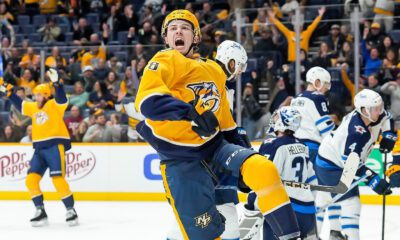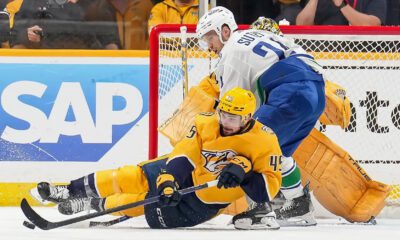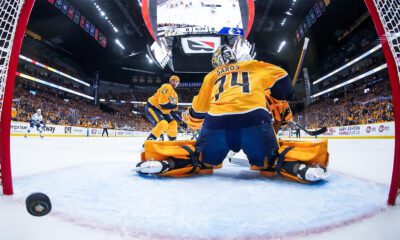Nashville Predators
Explaining Why NHL Got Controversial Alex Ovechkin No-Goal Call Wrong
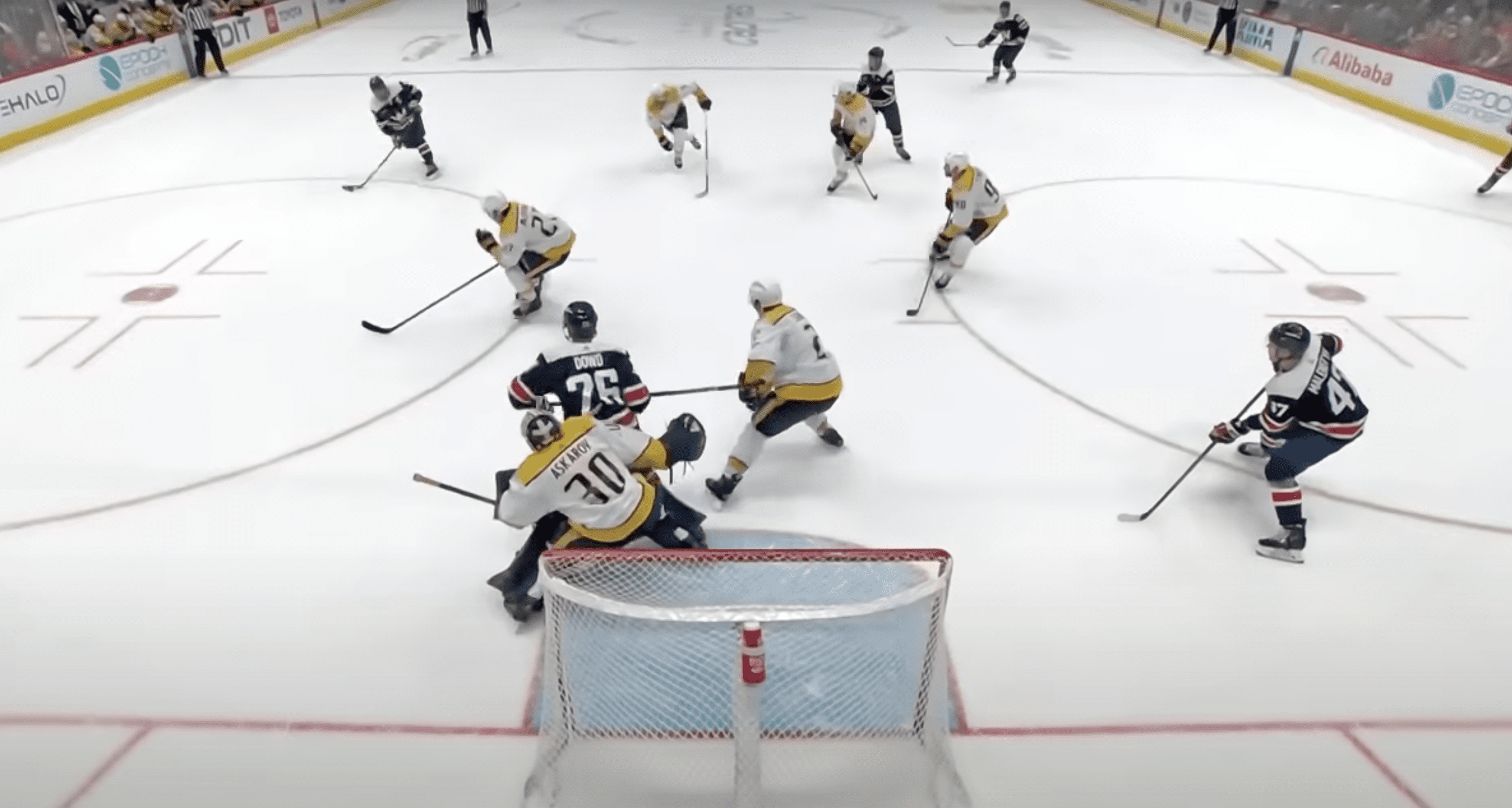
The Nashville Predators defeated the Washington Capitals 3-2 in a shootout on Saturday night at Capitol One Arena, but it wasn’t without controversy stemming from an Alex Ovechkin disallowed goal.
Interestingly enough, the Predators have had a few controversies this season, like Filip Forsberg’s overtime winner against the Pittsburgh Penguins on Nov. 28.
Saturday’s uproar came inside the final minute of the third period when Ovechkin appeared to score on a delayed penalty through a Nic Dowd screen in front of Predators goaltender Yaroslav Askarov that put the Capitals up 3-2 with 59.5 seconds left in regulation. Or so everyone thought.
The goal was overturned for goaltender interference shortly after as officials ruled Dowd had crossed in front of Askarov and prevented him from making the save.
An overturned goal in this manner will usually come with controversy, but this one had a little extra sting as Ovechkin is within striking distance of Wayne Gretzky’s goal-scoring record (Ovechkin currently sits at 829 and Gretzky at 894).
Without Predators head coach Andrew Brunette asking, the referees went to the scorers’ table and put on their headsets to review the play. Below is video of what happened (courtesy of the NHL YouTube channel).
After watching the replay, goaltender interference was the wrong call.
The play was fast and the Capitals switched sides of the ice quickly, forcing Filip Forsberg out of position as he lost the edge. The video shows there’s zero interference on Dowd’s part, and it was the responsibility of either Ryan McDonagh or Luke Schenn to move Dowd out of Askarov’s line of sight. McDonagh was shifting up to challenge Ovechkin, leaving Schenn as the closest guy to the goalie.
In a perfect world, he would have shifted over to help Askarov out. Was it unfortunate? Yes. But was there goaltender interference? No.
Some have wondered if perhaps the interference call was a reprieve granted by the officials, who missed two possessions by the Predators (both by Gustav Nyquist) during the delayed penalty that should have stopped play but didn’t, and this was a way to save face.
Part of the problem is the NHL’s rule on goaltender interference remains ambiguous. The NHL rulebook can be confusing, so I initially thought that the right conclusion was reached but the wrong process was used. The Rule I was thinking of was Rule 38.2(b) and 38.3 of the 2023-24 NHL Rulebook.
First, here’s what 38.3 says about challenges with less than one minute left in regulation:
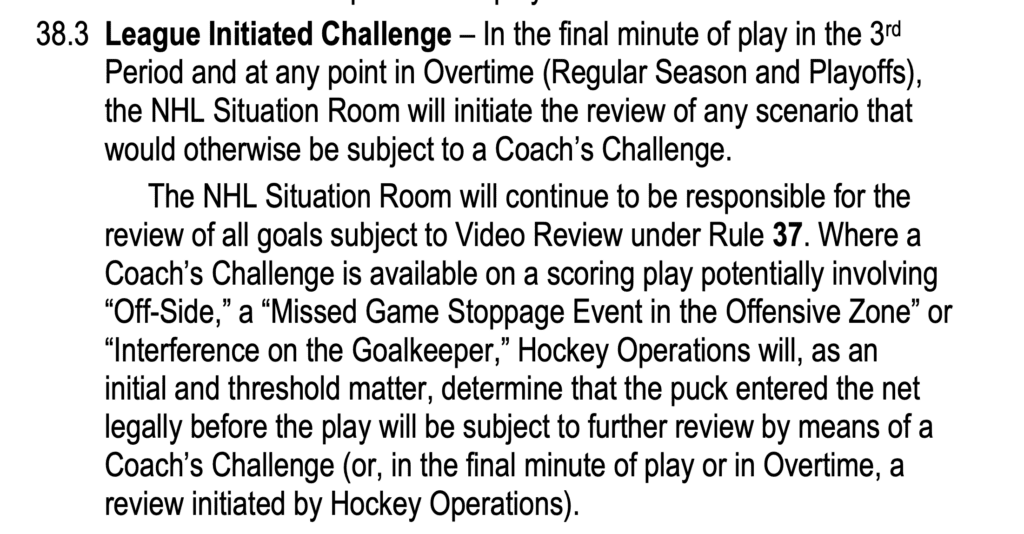

The review of the goal without Brunette issuing a coaches challenge is not only the correct course of action, it also makes perfect sense because there was arguably a “missed game stoppage event in the offensive zone” and “interference on the goalkeeper.”
Now, here’s what 38.2(b) says about the missed game stoppage:
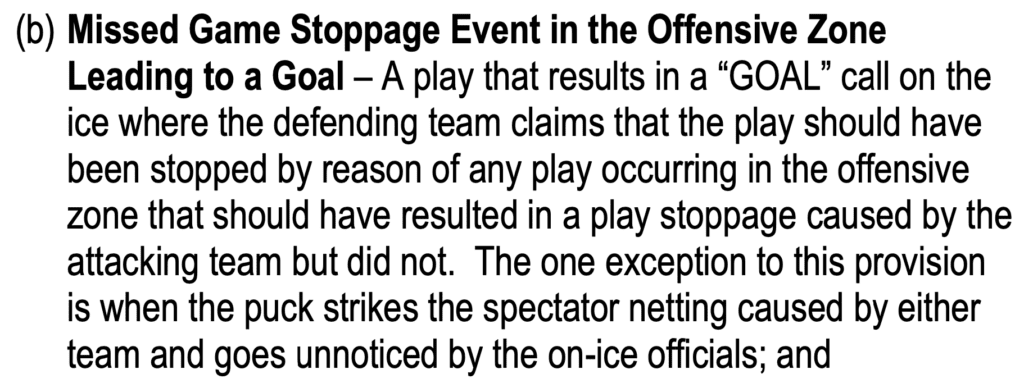

While Rule 38.2(b) is ambiguous, as a writer with a legal background, I can attest that it most certainly applies to the no goal — meaning there was a missed stoppage in play that later led to a goal, and the NHL initiated the review on its own because it was a challengeable play for two of the listed reasons in Rule 38.3 with less than one minute left in the third period.
But a closer look at Rule 38.2(b) shows the missed game stoppage was not “in a play stoppage caused by the attacking team.” That part is key because according to the rules, the missed stoppage for Nyquist touching the puck twice during the delayed penalty in the Predators’ defensive zone would not constitute a reviewable play because it was not caused by the Capitals, the attacking team.
Polarizing or not, the Predators got a much-needed two points and Askarov, one of Nashville’s top prospects, picked up his first NHL win.
Follow Clay Brewer on Twitter/X: @ClayBrewer10
Be sure to follow Nashville Hockey Now on X/Twitter, Facebook, YouTube and Instagram.

